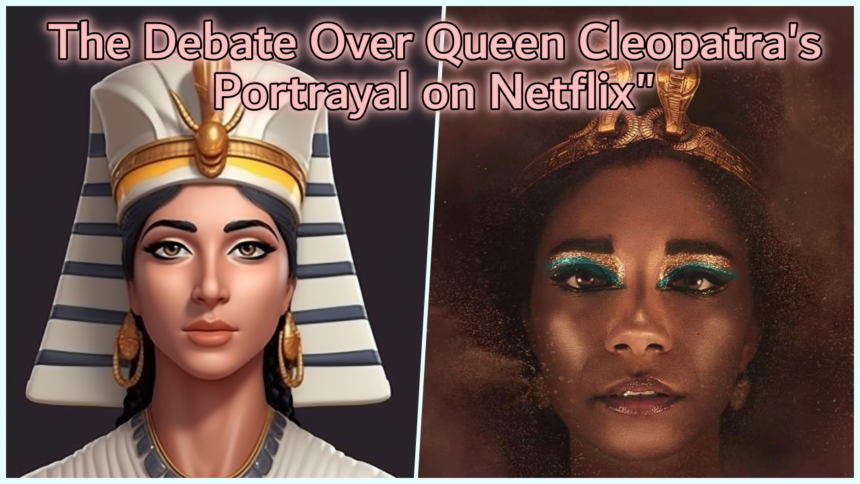Egyptians demand an end to the falsification of Queen Cleopatra’s history: Almost 60k Sign the Petition to Stop Netflix’s new Documentary
Netflix’s new series “Queen Cleopatra,” produced by Jada Pinkett Smith, wife of Will Smith, a petition to cancel the show has gained significant traction online. Over 60,000 people have already signed the petition, which calls for the cancellation of the show due to concerns surrounding historical inaccuracies and cultural appropriation.
Critics argue that the series, which chronicles the life of the last pharaoh of ancient Egypt, Cleopatra VII, is riddled with historical inaccuracies that perpetuate misconceptions about the real origin of the Queen. The contentious series has spurred heated discussions on social media about historical revisionism, racism, supremacism, and ethnicity. Additionally, concerns have been raised about the casting of the main character, with some arguing that the actress chosen to play Cleopatra is not representative of the historical figure’s ethnicity.

Maha Shehata and Aikk Yasser organized the petition to halt the upcoming documentary because it was “falsifying history.” The creators of the petition claim that Egyptians who believed that Egyptian history was being misrepresented were responsible for its creation.
A group’s desire to claim Egypt’s history and deprive the true Egyptians of it is being pushed via the pseudoscience known as “afrocentrism.” They are still trying to fabricate history using fraudulent articles and no supporting proof, according to the petition’s opening statement.
Controversy and Representation: The Debate Over Queen Cleopatra’s Portrayal
The debate surrounding the portrayal of Queen Cleopatra in Netflix’s new series has sparked significant discussion on social media platforms. Central to the debate is the question of whether Cleopatra should be portrayed as a black queen or if another representation is more historically accurate.
Cleopatra VII, the last pharaoh of ancient Egypt, was a member of the Ptolemaic dynasty, which descended from Ptolemy I, a Macedonian Greek general who served under Alexander the Great. As a result, some argue that Cleopatra’s ancestry was primarily Greek, and thus, she should not be portrayed as a black queen.
Others, however, assert that presenting Cleopatra as a black queen could contribute to a more inclusive and diverse representation of historical figures in film and television.
The debate on social media has led to a wide range of opinions, with some users advocating for more historically accurate portrayals and others stressing the importance of diverse representation in media. As with any historical figure, it can be challenging to determine the exact appearance of Cleopatra, which leaves room for interpretation and artistic license. The conversation surrounding the representation of Queen Cleopatra highlights the complexities of portraying historical figures in modern media and raises questions about the responsibilities of filmmakers and producers when depicting history.
“African Roots of Ancient Egypt”: Exploring the Afrocentric Perspective on Egypt’s History
Afrocentrism is a cultural and historical perspective that emphasizes the importance of African history and the contributions of African people to global civilization. When applied to the study of ancient Egypt, the afrocentric view focuses on the idea that ancient Egyptian civilization was fundamentally African in nature, with its people, culture, and achievements rooted in the African continent.
Proponents of the afrocentric view argue that the ancient Egyptians were indigenous to Africa and that their culture and society shared many similarities with other African cultures. They highlight the geographical location of Egypt on the African continent and the evidence of cultural connections with neighboring African civilizations.



Leave a Reply